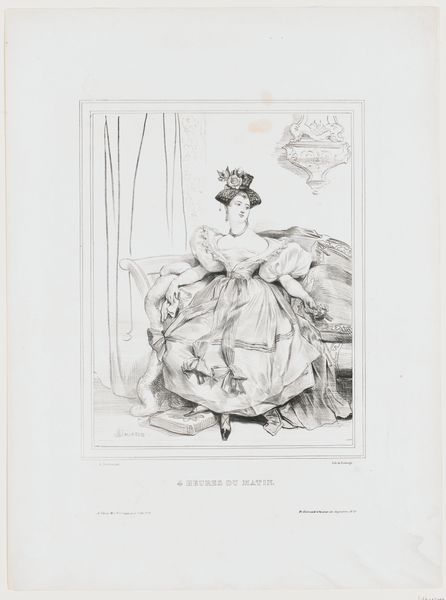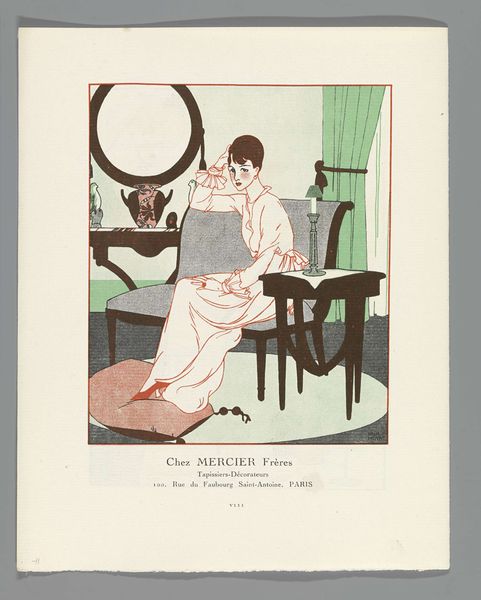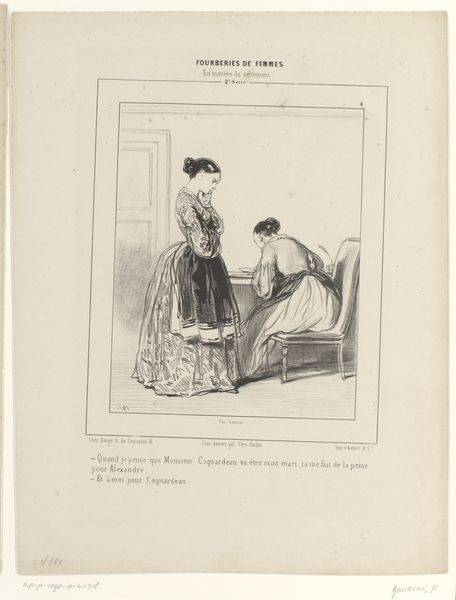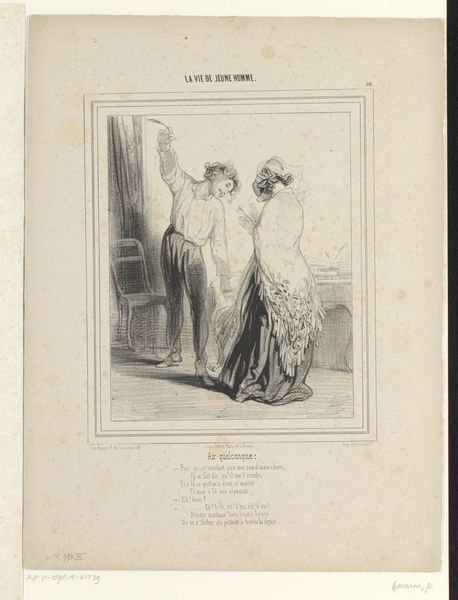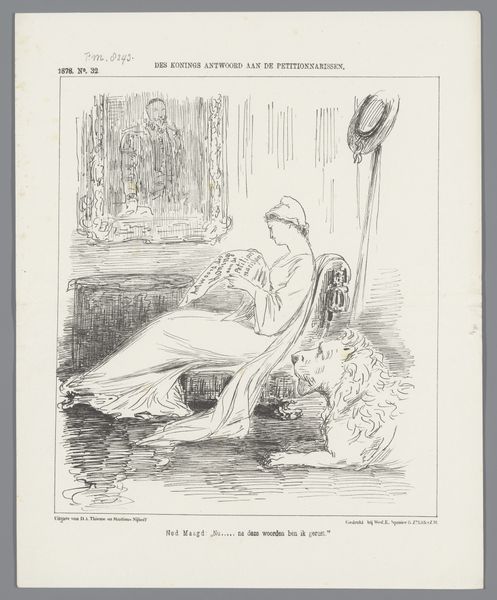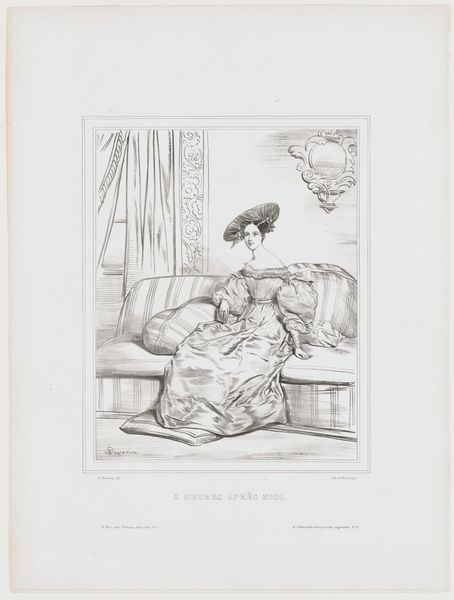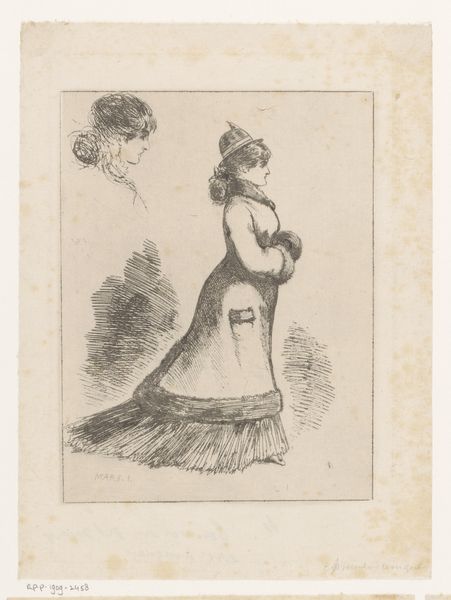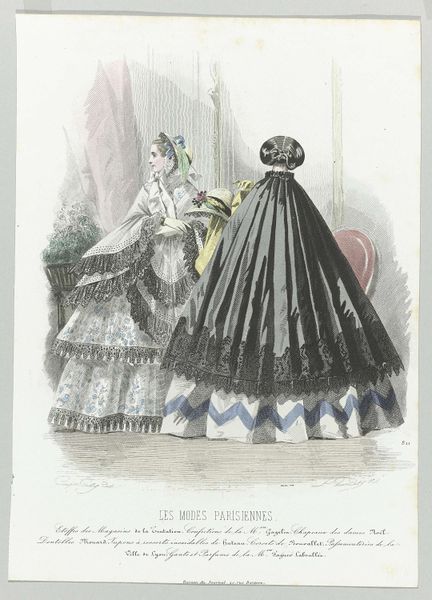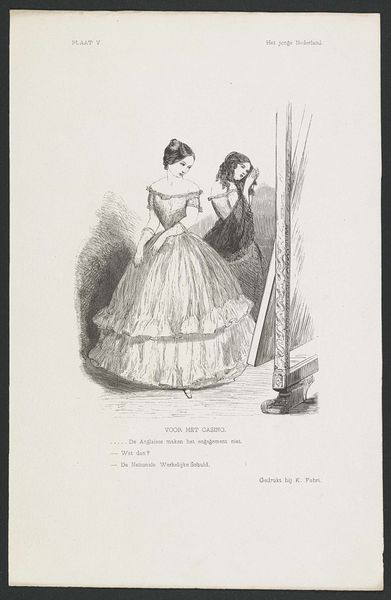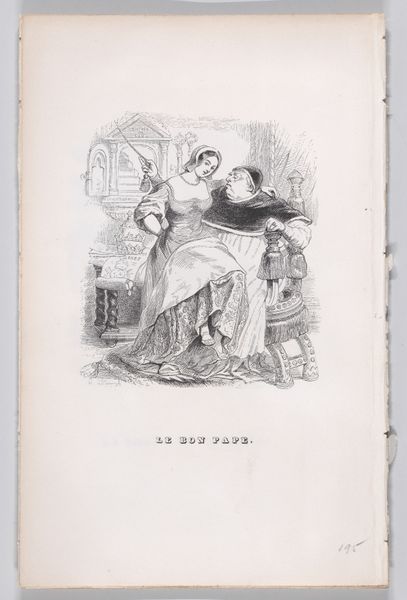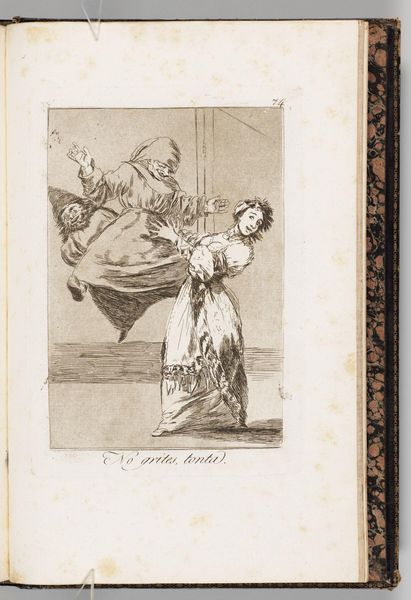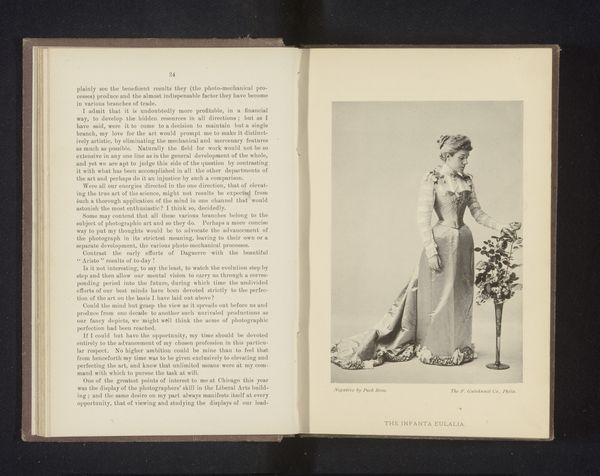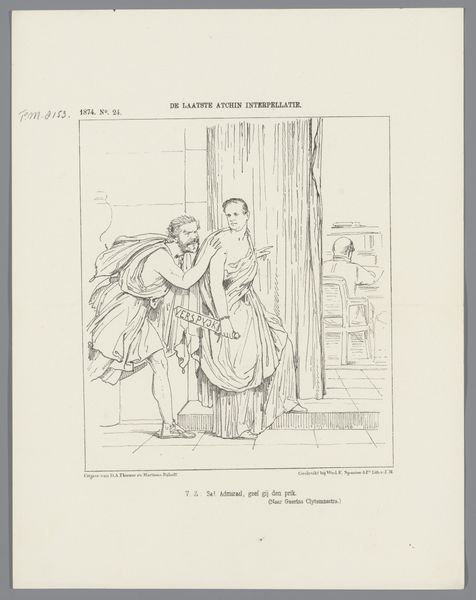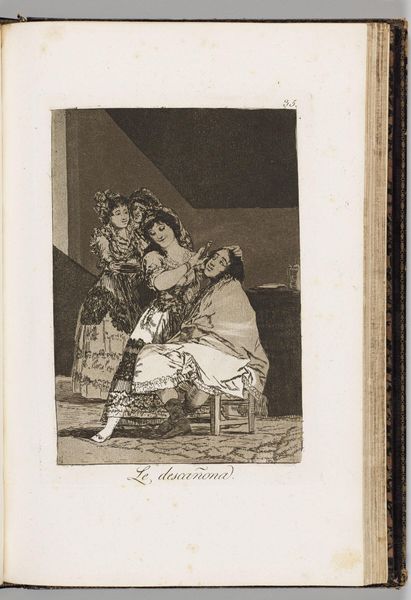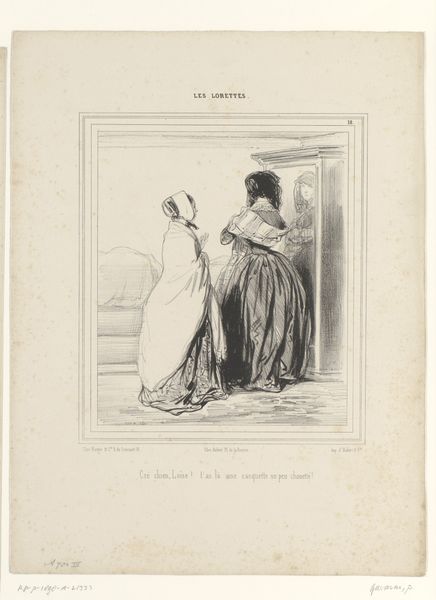
painting, print, watercolor
#
portrait
#
art-deco
#
painting
# print
#
figuration
#
watercolor
#
historical fashion
#
watercolour illustration
#
decorative-art
#
dress
Dimensions: height 246 mm, width 185 mm
Copyright: Rijks Museum: Open Domain
Editor: This print, advertising A. Janesich jewellery from the Gazette du Bon Ton in 1920, has this immediate sense of Jazz Age elegance. The vertical lines of her dress and the cascading necklaces are captivating, like a waterfall of style. What visual symbols speak to you in this work? Curator: Immediately, I see the powerful echoes of Art Deco, a style deeply rooted in cultural memory. Consider the jewelry: each strand, each bracelet, isn't merely adornment. It's a symbol of prosperity, freedom, and the burgeoning independence of women in the 1920s, wouldn't you say? Editor: Definitely. And the figure herself almost seems like an icon of the era, posed, almost idealized. Curator: Exactly! Halouze is carefully constructing an image. She is a carefully curated visage of the modern woman. Notice the colour palette – subdued golds, creams, and hints of mauve? This careful chromatic arrangement reflects both luxury and the stylistic principles espoused in the 'Gazette'. Each colour here becomes a symbol too, connecting us to a collective dream of beauty and aspiration. Don't you think it's intriguing how something so simple can carry such complex layers of meaning? Editor: I never considered the colours carrying that much symbolic weight, I guess. It is definitely more than an advert. It speaks to a larger cultural shift, a historical moment. Thanks so much. Curator: My pleasure. Images always whisper stories; our job is simply to listen closely.
Comments
rijksmuseum almost 2 years ago
⋮
The Gazette du Bon Ton also included advertisements: for shops selling fashions and fabrics, jewellers, hairdressers and beauticians. These ads were also well designed; many were drawn by the same artists who supplied the fashion plates. Even the smallest ads were presented with flair and in a style that was befitting of the whole.
Join the conversation
Join millions of artists and users on Artera today and experience the ultimate creative platform.
